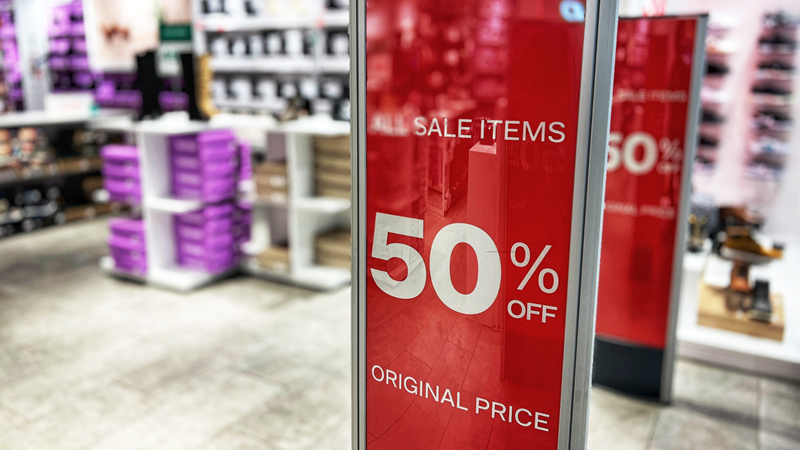Green spin and enviro-friendly claims
The CMA’s Director, Public Affairs and Regulatory Standards, Florentina Stancu-Soare, reached out to the Competition Bureau to get their perspective on what marketers need to know about environmental claims.
Canadians are concerned about the environmental impact of the products and services they use. They want to purchase items that are less harmful to the environment and buy from environmentally conscious businesses.
Companies have responded to that growing demand with an increased supply of “green” products and services. But not every product is as “green” as it looks.
The Competition Bureau enforces laws that help ensure that claims in the marketplace are truthful and not misleading so that consumers can make informed purchasing decisions and also ensures fair competition.
What is an environmental claim?
An environmental claim can take many forms, including a statement, an adjective, a symbol, a graphic or a colour. It can be made on a product, package, online or by any other means. For example, it could aim to downplay the negative environmental impact of a product or service, or focus on a specific benefit, ignoring the negative.
What is greenwashing?
While some environmental claims are true, others may be false, misleading or unsupported by adequate and proper tests. This practice is called “greenwashing” and is used by businesses to create an impression that a product, service or a business as a whole, is “greener” than it really is.
Greenwashing may contravene the law, so it’s important for marketers and brands to familiarize themselves with the rules and follow them.
What types of environmental claims are permissible under the law? Can you provide any examples?
Claims are permissible if they are truthful, not misleading and based on adequate and proper tests.
Environmental claims that are false, misleading or unsupported by adequate and proper tests may raise concerns under three laws enforced by the Competition Bureau: the Competition Act, the Textile Labelling Act, orthe Consumer Packaging and Labelling Act.
There could be issues under the law if a company makes a false or misleading claim to promote a product, service or business interest that influences a consumer to buy or use the product or service advertised, for example. When assessing a claim, the Bureau looks at the general impression it conveys, as well as its literal meaning. Both are considered when determining whether a claim is false or misleading.
What should brands know about environmental labelling?
The Consumer Packaging and Labelling Act and the Textile Labelling Act require that prepackaged non-food consumer products and textile articles bear accurate and meaningful labelling information to help consumers make informed purchasing decisions.
They also prohibit any forms of false or misleading claims and sets out specifications for mandatory label information. All information on a package or label, whether in symbols or words, or about the fibre present in a textile, must be neither false nor misleading to consumers.
Under the Consumer Packaging and Labelling Act, there are three mandatory statements which must be shown on a label:
- the product's name;
- net quantity; and
- dealer identity.
Under the Textile Labelling Act, the mandatory label information is:
- the generic name and percentage by mass of each fibre present; and
- the dealer's full name and postal address or a CA identification number.
Supplementary information, such as an environmental claim on labels or packaging, can be included if it is not false or misleading.
What steps can marketers and businesses take to be compliant? Any recommendations for marketers and brands?
Before making environmental claims, businesses and marketers must make sure that the claims:
- are truthful and not misleading;
- are specific: be precise about the environmental benefits of your product;
- are substantiated and verifiable: claims must be tested and all tests must be adequate and proper;
- do not result in misinterpretations;
- do not exaggerate the environmental benefits of your product; and
- do not imply that your product is endorsed by a third-party organization if it isn’t.
Remember: If unsure whether a claim will mislead or misrepresent, then do not make the claim.
What are some of the most common missteps by brands? Can you provide some examples?
A global review of randomly selected websites led by the International Consumer Protection and Enforcement Network in 2020, found that 40% of green claims made online could be misleading consumers.
Two cases involving environmental claims that were resolved by the Competition Bureau can provide a good frame of reference for marketers.
Case 1: Recyclability
In January 2022, the Competition Bureau reached an agreement with Keurig Canada Inc., which included a $3 million penalty, to resolve concerns over false or misleading environmental claims made to consumers about the recyclability of its single-use Keurig® K-Cup® pods.
The Bureau’s investigation concluded that Keurig Canada’s claims about the recyclability of its single-use coffee pods, which are made on its website, social media and mobile, and through logo on products and packaging, are false or misleading in areas where the pods are not accepted for recycling. The Bureau found that, outside the provinces of British Columbia and Quebec, K-Cup pods are currently not widely accepted in municipal recycling programs. The Bureau also concluded that Keurig Canada’s claims about the steps involved to prepare the pods for recycling are false or misleading in certain municipalities. Keurig Canada’s claims give the impression that consumers can prepare the pods for recycling by peeling the lid off and emptying out the coffee grounds, but some local recycling programs require additional steps to recycle the pods
Case 2: Emissions
In 2016 and 2018, the Bureau reached a consent agreement with Volkswagen Group Canada Inc. and Audi Canada Inc. and an additional consent agreement with Volkswagen Group Canada Inc., Audi Canada Inc. and Porsche Cars Canada Inc. resulting in $17.5 million in penalties, in relation to false or misleading environmental claims that were used to promote certain vehicles with 2.0 and 3.0 litre diesel engines. The Bureau’s investigation found that Volkswagen Canada and Audi Canada misled consumers by promoting vehicles sold or leased in Canada as having clean diesel engines with reduced emissions that were cleaner than an equivalent gasoline engine sold in Canada. The vehicles passed applicable emissions tests because software was installed that altered the operation of the vehicle during testing which appeared to have the effect of reducing emissions in testing.
If there is anything related to the product or service that cannot be substantiated or that could mislead consumers, marketers and brands are advised to be transparent with consumers and do not make the claim.
We know that consumer trust is more important than ever, and that consumers are increasingly concerned about the impact of their purchases on the environment.
What advice does the Bureau offer to consumers to protect themselves against greenwashing?
We advise consumers to take time to reflect on “green” claims, keeping in mind that while some are true, others may be false, misleading, or unsupported by adequate and proper tests. In particular, they should reflect on vague or broad statements such as “eco-friendly” and “safe for the environment”.
We also remind them not to be fooled by nature-themed images like water, clouds, plants, animals and earth, or colours used on packaging and in marketing. They should keep in mind that allconsumer goods have an impact on the environment, including those that claim to be "green".
Consumers who have doubts about an environmental claim can reach out to the company and ask them questions. If they believe that a business may have made a false, misleading or unsubstantiated environmental claim, they can report it to the Competition Bureau.
Where can marketers get more information?
Marketers can visit the Bureau’s website for more information about environmental claims and greenwashing.



































